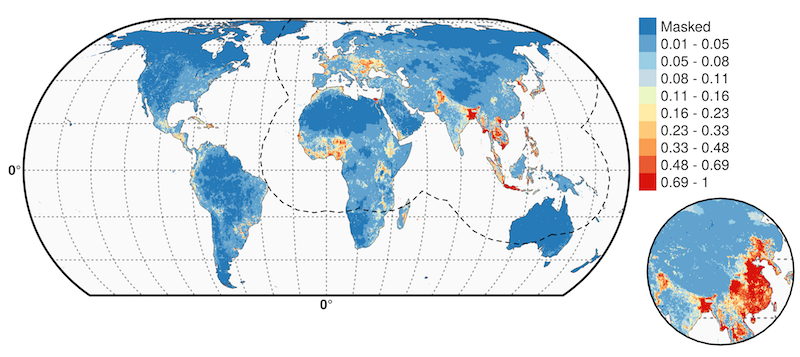New study published in eLife on the global risk mapping of the avian influenza virus H5N1
Published on December 22, 2016, by Marius Gilbert
A new paper has just been published in eLife mapping the global distribution of areas where HPAI H5N1 would have a high chance of sustained transmission upon introduction, as illustrated in the figure below.

This was our first experience with elife and we really enjoyed the quality and transparency of the peer-reviewing process, where referee comments are summarized and consolidated by the editorial team, and published, with their responses alonside the paper. The paper is available in open access here: https://elifesciences.org/content/5/e19571. The paper also introduces spatial cross-validation techniques that are shown to be particularly important to quantify the goodness of fit of spatial machine-learning models, as compared to standard cross-validations.